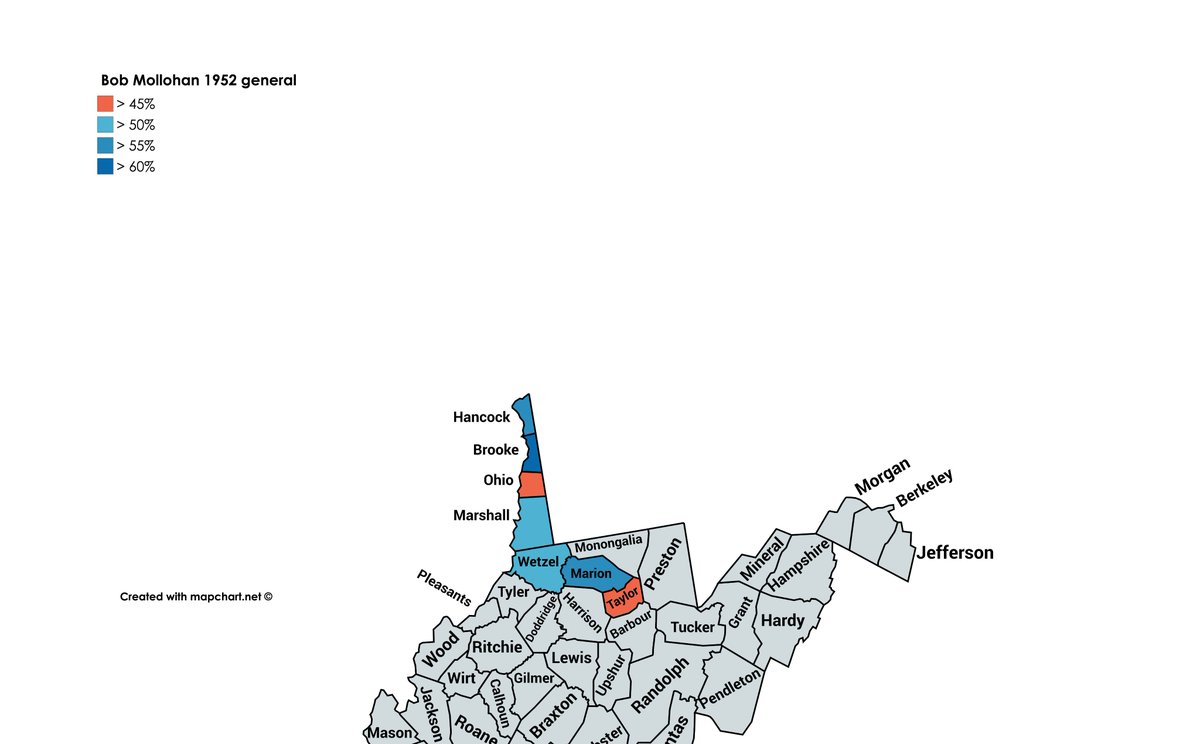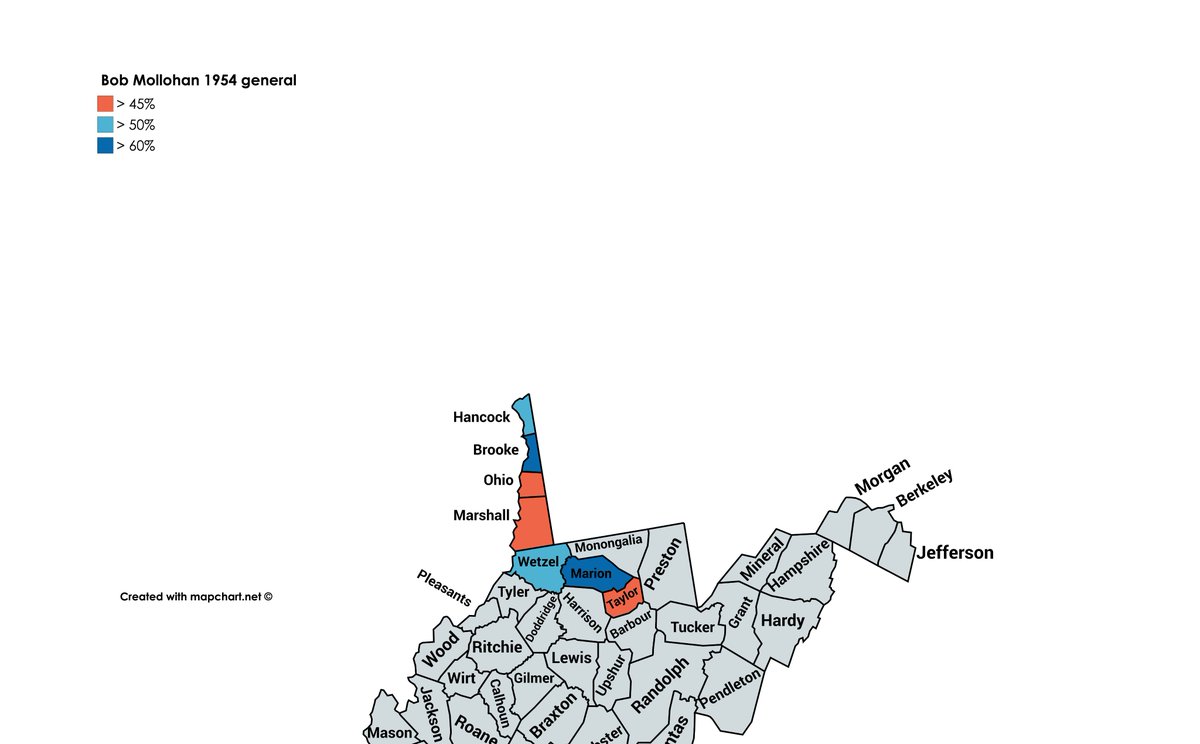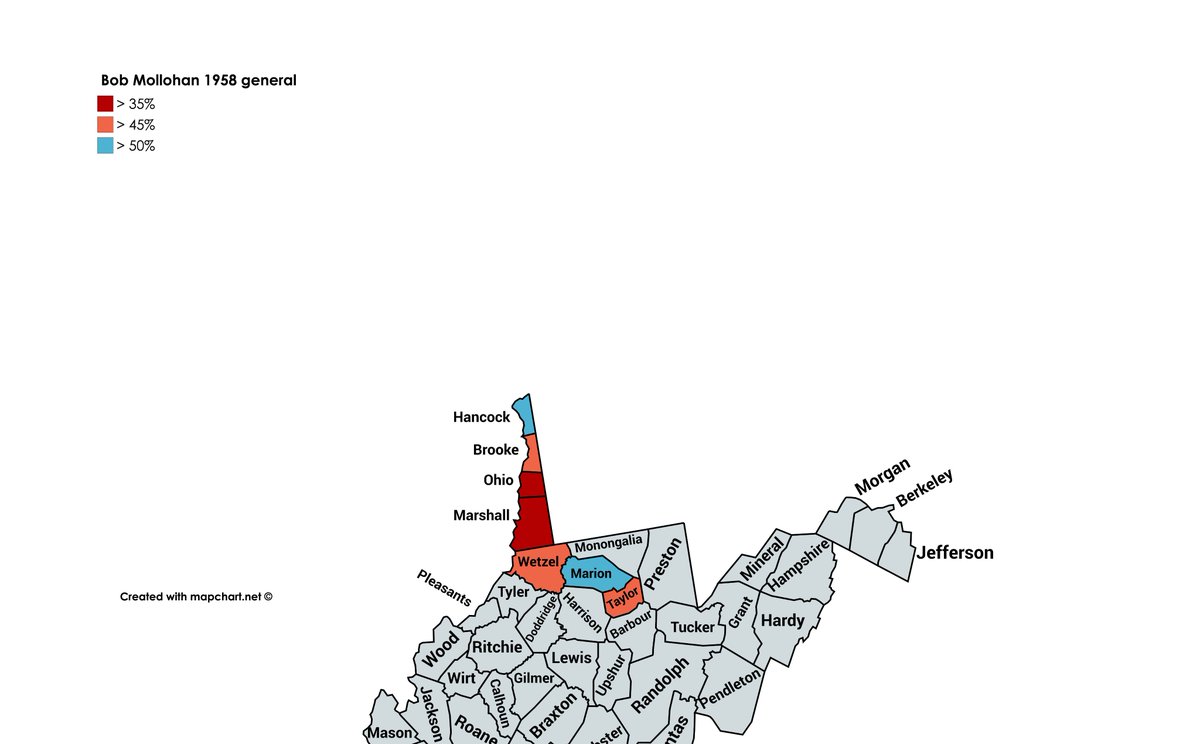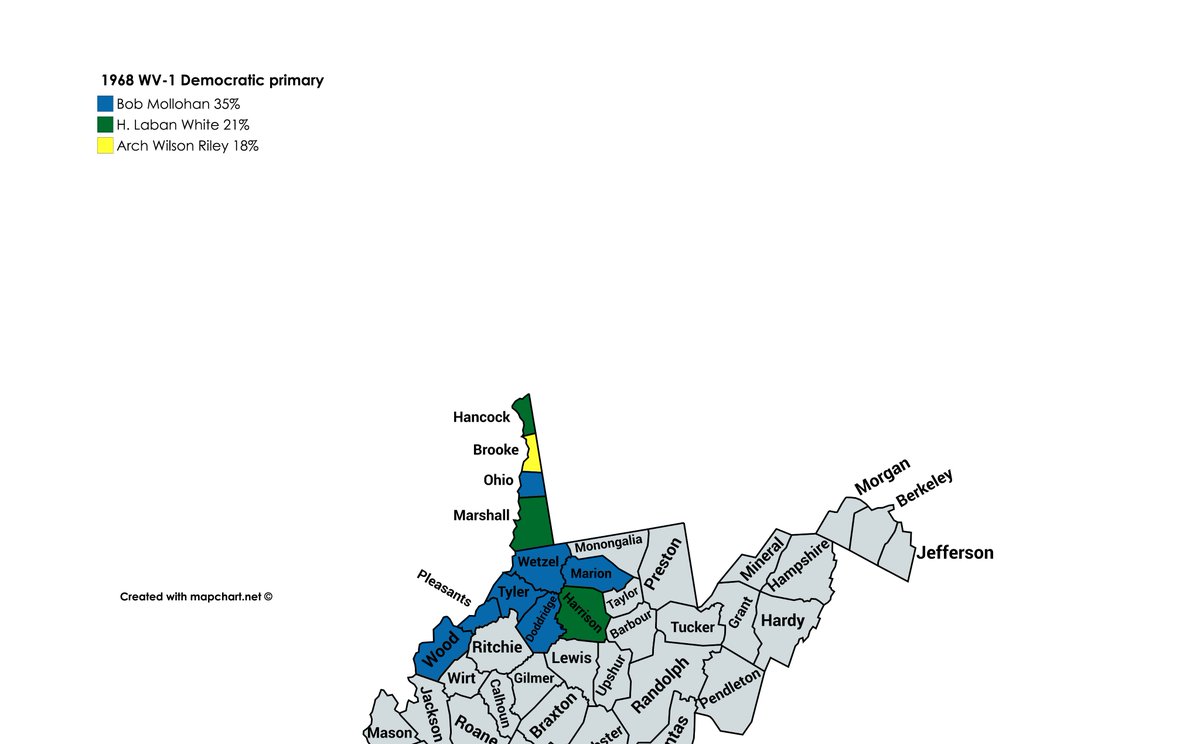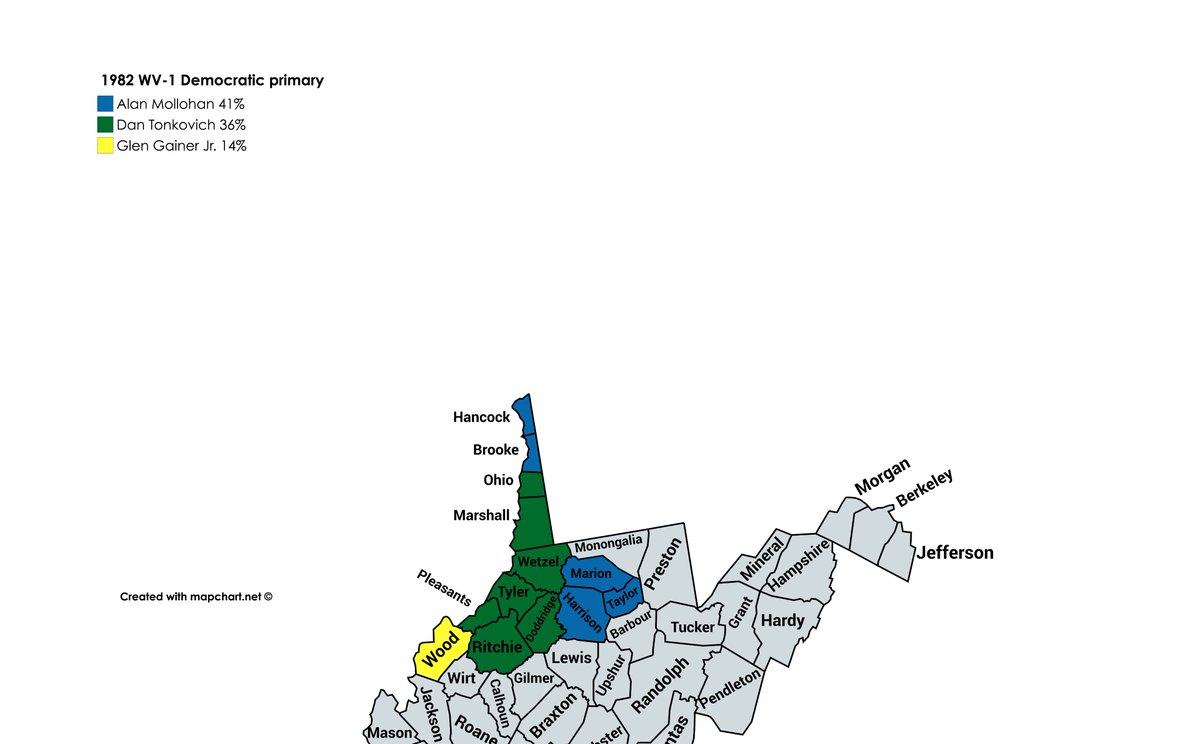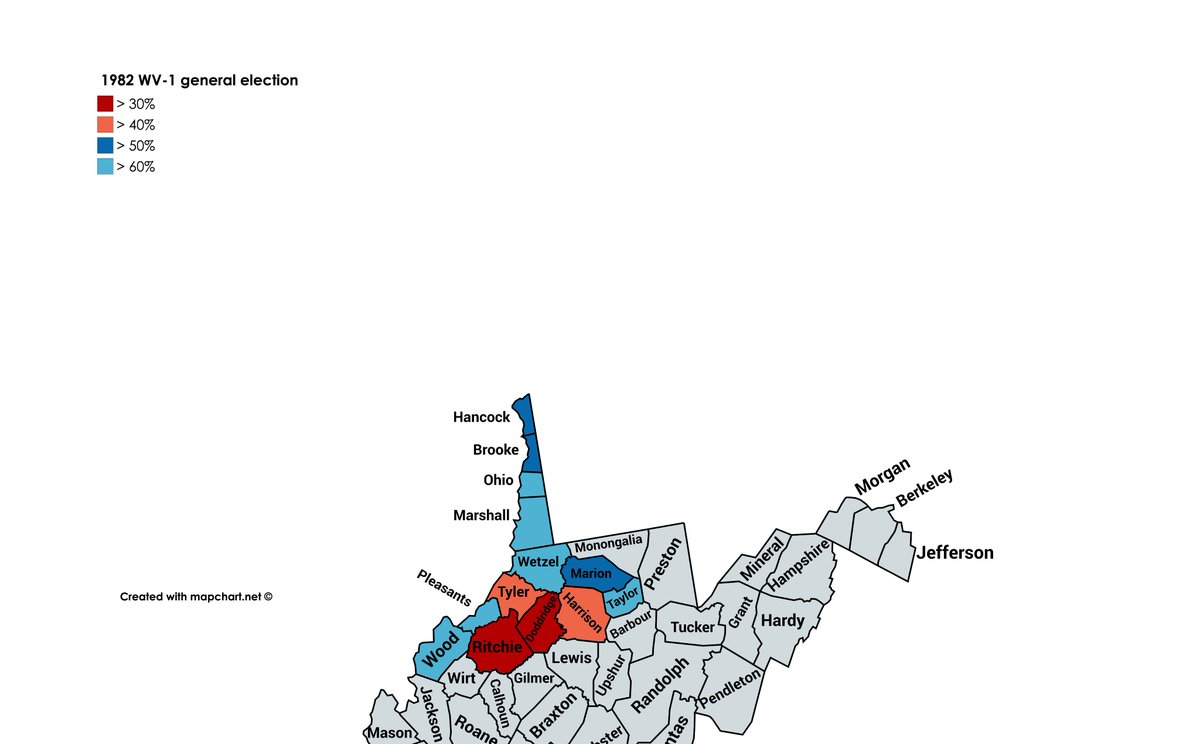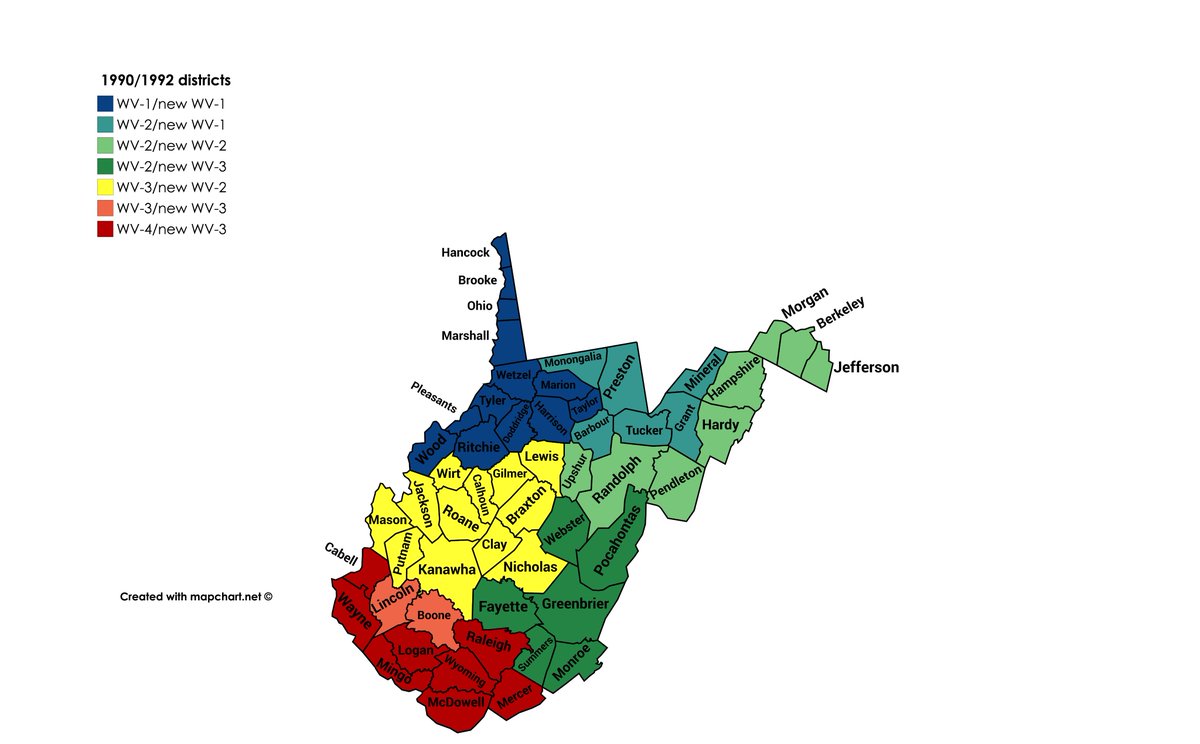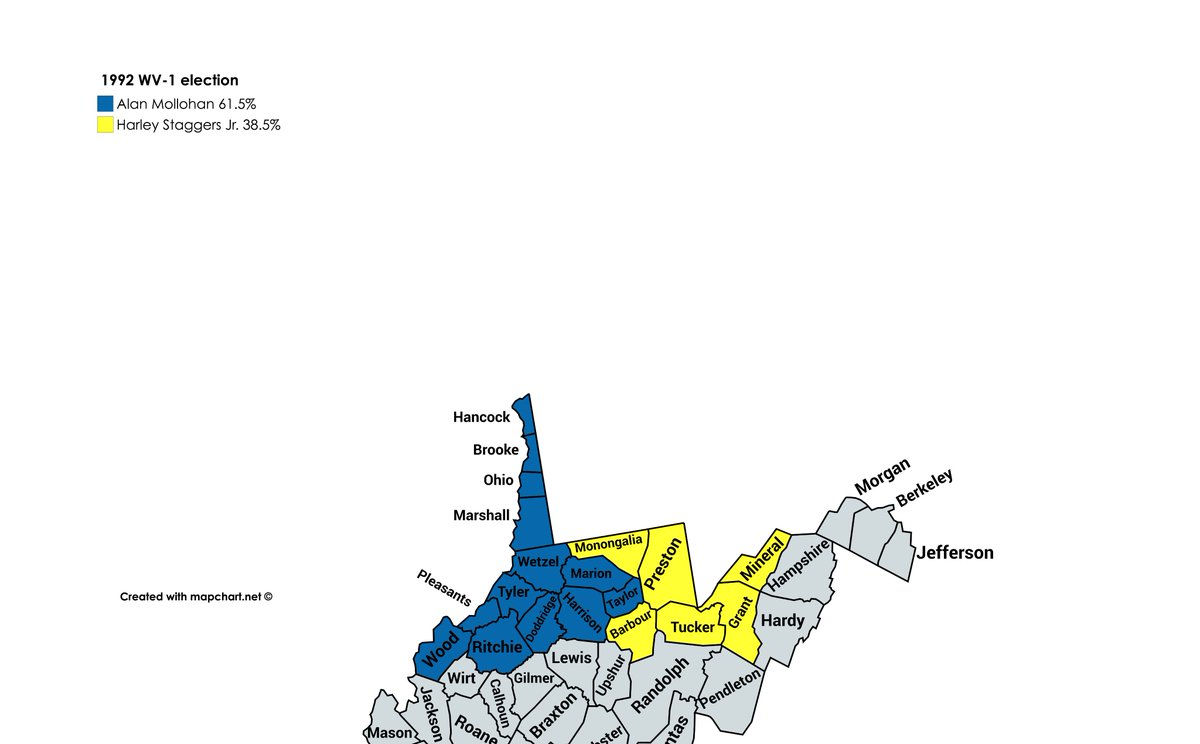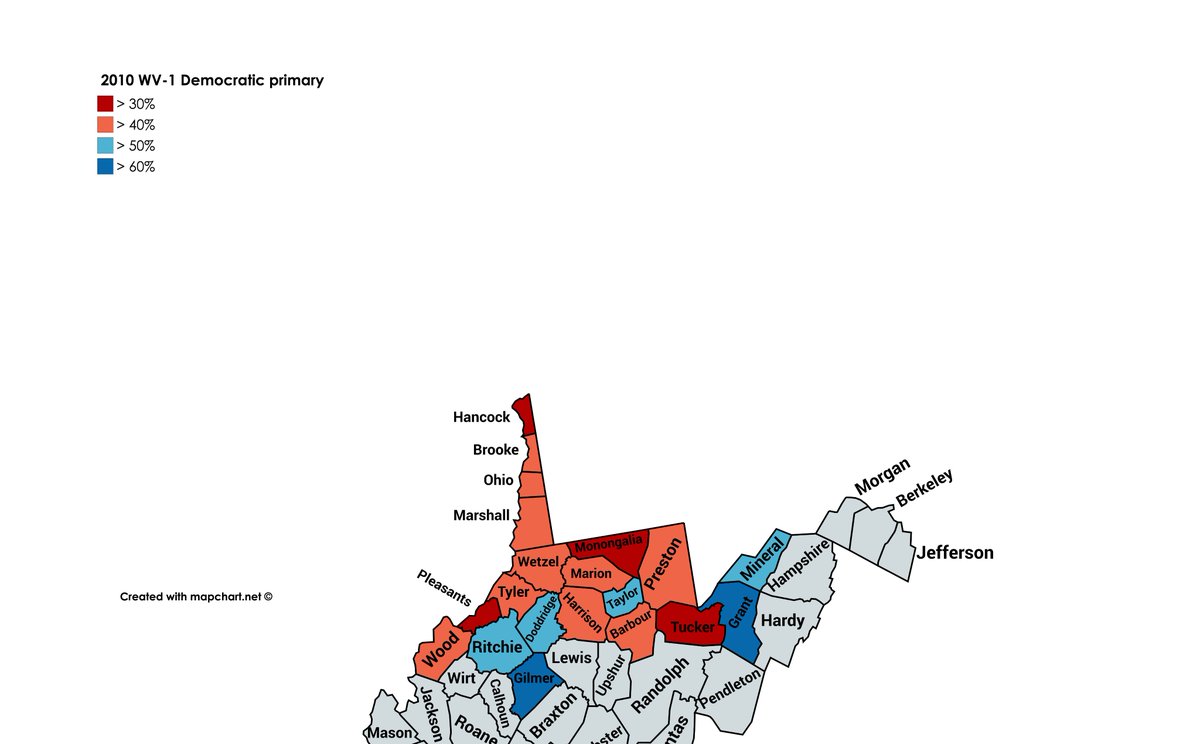THREAD: in which Lenny makes good on his threats
In 1952 Senate clerk Bob Mollohan knocked off the previous two representatives from #WV01: he beat incumbent Robert Ramsay 51-49, his strength in/around Marion County offsetting Ramsay's performance in the Northern Panhandle...
In 1952 Senate clerk Bob Mollohan knocked off the previous two representatives from #WV01: he beat incumbent Robert Ramsay 51-49, his strength in/around Marion County offsetting Ramsay's performance in the Northern Panhandle...
...then dispatching Ramsay's predecessor, Francis Love, 53-47. Mollohan would hold the seat for two terms...
...his re-election in 1954 coming at the expense of a lawyer from Moundsville by the name of Arch Moore. Moore would claim the seat in 1956, but not exactly at Mollohan's expense...
...as Mollohan decided to run for governor instead. He won a jumbled primary over Milton Ferguson (who would later prosecute governor Wally Barron), Clerk of the House J. Howard Myers, and future Secretary of State Joe Burdett
Mollohan ran up big margins in the Northern Panhandle and the coalfields to propel him to victory in the primary--winning by over 60 points in Marshall and McDowell counties--and he faced House minority leader Cecil Underwood in the general election.
His campaign was derailed, however, by a late revelation of kickbacks accepted at a previous job as head of the state's primary juvenile home. Underwood became the first Republican governor of West Virginia since the Depression, taking 56% of the vote
Mollohan would try to get his seat in Congress back two years later, and handily won his primary, but lost round two to Arch Moore 55-45. He would stay out of politics until Moore ran for governor in 1968, and he gave his old seat another stab.
In a mixed field that included House speaker Laban White, Ohio County prosecutor Arch Riley, future state treasurer Larrie Bailey, and Fairmont State coaching legend Squibb Wilson, Mollohan came out on top, then previled 54-46 over former legislator Tom Sweeney
(I have incomplete info on the general there, so no map  )
)
 )
)
Bob Mollohan was scarcely challenged for the remainder of his tenure in Congress, and retired in 1982. The field to replace him included Senate president Dan Tonkovich, state auditor Glen Gainer Jr., and a lawyer from Fairmont named... Alan Mollohan.
Mollohan was able to outperform Tonkovich in the steel tip of the Northern Panhandle, and won the primary by just over 3,000 votes. He faced Clarksburg lawyer John F. McCuskey--father of current auditor J.B. McCuskey--in the general
He took 53 percent of the vote in 1982, then 54 percent in his reelection against Wheeling businessman Jim Altmeyer. Mollohan went unopposed in 1986 and faced scant opposition over the next 24 years.
The closest race he had before 2010 was after West Virginia lost a seat in the 1990 redistricting. Harley Staggers Jr.'s district, mostly comprising the Eastern Panhandle and Monongalia County, was split among the three remaining districts...
Staggers was drawn into Mollohan's district, and while they each dominated in their existing territory, Mollohan's old district comprised 75% of the new district, and he beat Staggers fairly easily.
In 2006, an ethics investigation was launched into Mollohan and family-run charitable groups. He was cleared, and won reelection handily in 2006 and ran unopposed in 2008, but in 2010 state senator Mike Oliverio launched a primary challenge.
Oliverio brought back those ethics charges as he mounted a challenge from the right. It worked--for the first time, a Mollohan did not carry Marion County, and Oliverio prevailed 56-44.
Oliverio would narrowly lose to former state Republican Party chair David McKinley by just 1,440 votes. It was arguably the first domino to fall in the crumbling of West Virginia Democrats on a statewide level. /fin

 Read on Twitter
Read on Twitter
